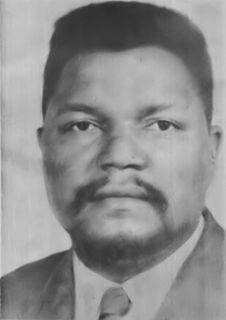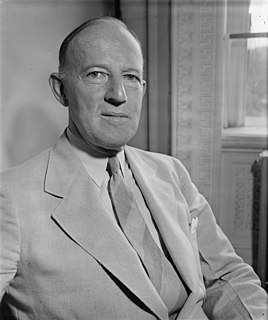A Quote by Nelson Mandela
It is time for the next generations to continue our struggle against social injustice and for the rights of humanity. It is in your hands.
Related Quotes
Today, we are closer to fulfilling America's promise of economic and social justice because we stand on the shoulders of giants like Dr. King, yet our future progress will depend on how we prepare our next generation of leaders. We must fortify their ladders of opportunity by correcting social injustice, breaking the cycle of poverty in struggling communities, and reinvesting in our schools. Education can unlock a child's potential and remains our strongest weapon against injustice and inequality.
No one who passively endures an injustice against himself has the material in him to struggle for the rights of others. The one who patiently forbears becomes an accessory to the injustice done to others. He who resists the injustice which he himself meets can open up the way to a higher right for others.
The violence that we had in the 60's was limited. The next time it will be unlimited because the violence in the 60's was a struggle for human dignity and for human rights. The next struggle will be a struggle for survival and it will not just be limited to Black people or Black against white, but it will be the poor people, the masses of the people of the country, struggling for the right to live or the right to survive.
In distinguishing between Islamic teachings and social taboos, we must remember that Islam forbids injustice; Injustice against people, against nations, against women. It shuns race, color, and gender as a basis of distinction amongst fellowmen. It enshrines piety as the sole criteria for judging humankind.
History down through the centuries has proved again and again that there can be but one outcome to a struggle for selfish power against forces fighting to protect and advance human rights. Those genuinely serving humanity always ultimately emerge triumphant. It is under their standards that the [Western] allies choose to throw in their lot for humanity's defense.
Thomas Jefferson understood the greater purpose of the liberty that our Founding Fathers sought during the creation of our Nation. Although it was against the British that the colonists fought for political rights, the true source of the rights of man was clearly stated in the Declaration of Independence. Jefferson wrote that all humans are endowed by their Creator with certain unalienable Rights . . . . It was self-evident to him that denying these rights was wrong and that he and others must struggle to win what was theirs.
We must understand the role of human rights as empowering of individuals and communities. By protecting these rights, we can help prevent the many conflicts based on poverty, discrimination and exclusion (social, economic and political) that continue to plague humanity and destroy decades of development efforts. The vicious circle of human rights violations that lead to conflicts-which in turn lead to more violations-must be broken. I believe we can break it only by ensuring respect for all human rights.
Nelson Mandela stood up against a great injustice and was willing to pay a huge price for that. That's the reason he's mourned today, because of that struggle that he performed I mean, what he was advocating for was not necessarily the right answer, but he was fighting against some great injustice, and I would make the argument that we have a great injustice going on right now in this country with an ever-increasing size of government that is taking over and controlling people's lives, and Obamacare is front and center in that.
What is the good of your stars and trees, your sunrise and the wind, if they do not enter into our daily lives? They have never entered into mine, but into yours, we thought--Haven't we all to struggle against life's daily greyness, against pettiness, against mechanical cheerfulness, against suspicion? I struggle by remembering my friends; others I have known by remembering some place--some beloved place or tree--we thought you one of these.
The economic class struggle is a struggle against inessanlty intensified exploitation: not only against the brutal material form of exploitation, capitalism's tendency to reduce wages, and against the class 'techniques' for increasing productivity... but also around the question of the technical-social division of labor that prevails om enterprises, and against bourgeois ideology and repression.











































